#nanna heitmann
Explore tagged Tumblr posts
Text
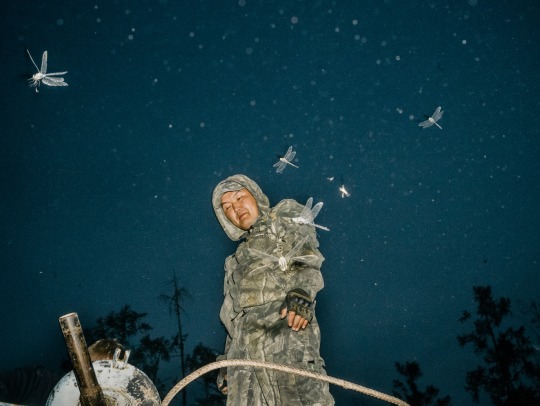
Nanna Heitmann (German-Russian,b. 1995)
Bulgunnyakhtakh, Yakutia, Russia, 2021
356 notes
·
View notes
Photo

Krasnoyarsk, Yenisei River, Russia, 2018
Nanna Heitmann
99 notes
·
View notes
Text

A dog emerged from the dark, stood still a few seconds under the northern lights, then disappeared again into the tundra, Teriberka, Russia, Nanna Heitmann, April 2021
39 notes
·
View notes
Text

Nanna Heitmann | Magnum
53 notes
·
View notes
Text
instagram
Nanna Heitmann
2 notes
·
View notes
Text

Nanna Heitmann
Krasnoyarsk, Russia, 2018
Photography
0 notes
Text
'Images From a Weary World' Dominate NYT's Year in Pictures
As you splendid readers no doubt recall, an annual tradition at the Global Worldwide Headquarters is the Counting of the Photogs in the New York Times “Year in Pictures” special section published at the end of every December (previous photo finishes here). The Year in Pictures 2023 comes literally wrapped in human tragedy, with this image spanning the front and back covers. “This woman was…
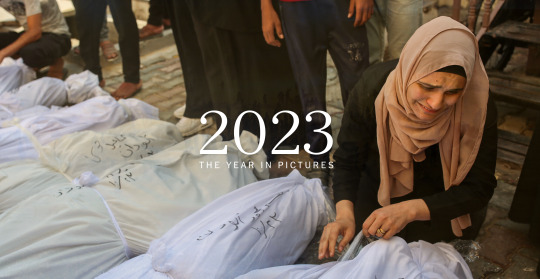
View On WordPress
#Amir Hamja#Dave Sanders#Erin Schaff#Jeffrey Henson Scales#Marc Lacey#Nanna Heitmann#New York Times#Samar Abu Elouf#Sergey Ponomarev#Tamir Kalifa#Tanner Curtis#The Year in Pictures 2023#Tyler Hicks
1 note
·
View note
Photo

Hiding from Baba Yaga by Nanna Heitmann https://thisispaper.com/mag/hiding-from-baba-yaga-nanna-heitmann
6 notes
·
View notes
Text
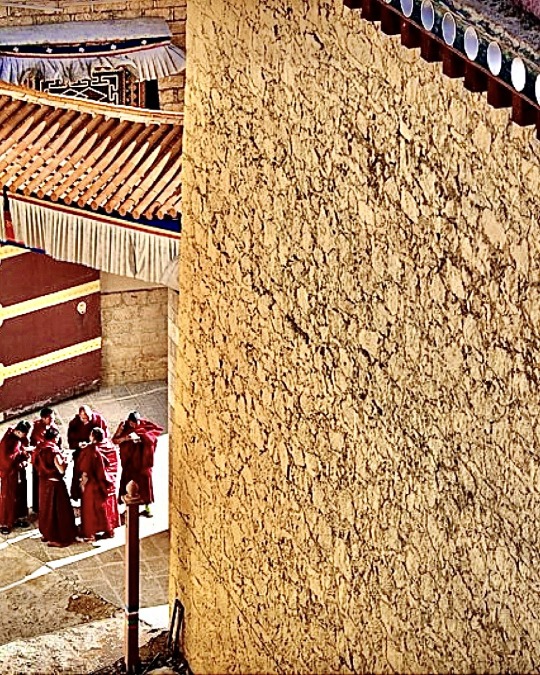
Monks chat in the sun at the Ganden Sumtseling Monastery in Shangri-la.
(Photo: Johannes Eisele / AFP / Getty)
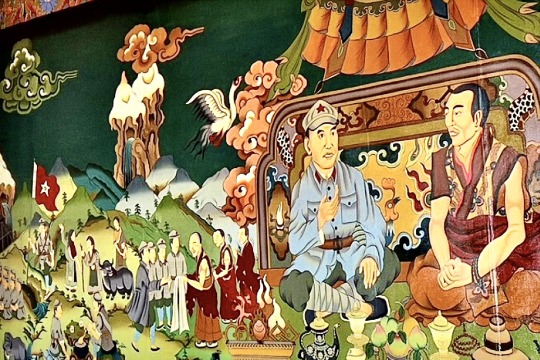
Mural at the Yangteng Gonpa monastery celebrating its “liberation” by the Red Army.
(Photo: Judith Hertog)
China’s Plan To Turn Buddhism Into Communist Propaganda
Patriotism laws, party-approved clergy, and preferential status — Xi Jinping’s war on religion comes to Tibetan monasteries.
Tibetan Buddhism’s recent spread presents both a threat and an opportunity for China’s President Xi Jinping. He wants to make China politically and culturally homogenous, a goal that could be jeopardized by a tradition steeped in Tibetan language and history. But Xi is enacting a program that seeks to turn the rising popularity of Tibetan Buddhism to his advantage — to transform the tradition from a hotbed of dissent into an instrument of assimilation and party propaganda. If it works, it could smooth his path to lifelong power and help him remake China according to his nationalist vision.
By Judith Hertog
The Atlantic- May 5, 2024
Shared from Apple News
•
•

In China, President Xi Jinping’s political will is exclusively propagated, implemented and enforced.
(Photo: Nanna Heitmann / Magnum)
Xi Jinping Is Fighting A Culture War At Home
The Chinese leader seeks to restore an earlier era of ideological indoctrination and national unity — whether his society wants it or not.
Xi’s push for communist conformity might seem anachronistic in the age of social media and the global digital commons. But it’s only one way he is dragging China back into an older, darker time. He has reversed decades of market liberalization in favor of renewed state intervention in the economy, returned to Cold War–style confrontation with the West after a period of fruitful cooperation, and reestablished one-man rule to a degree unseen since the days of Mao Zedong, the Communist regime’s founder. Now he is attempting to restore the intense ideological indoctrination of earlier years of Communist rule—the era of Mao’s Little Red Book—in a quest for national “unity,” as he defines it, and total Party dominance.
By Michael Schuman
The Atlantic - December 20, 2023
Shared from Apple News
•
•
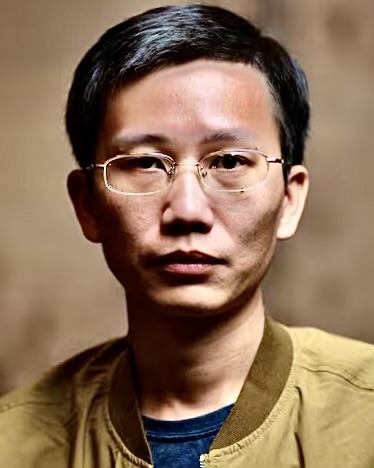
The former spy, Eric, is now in Australia. Eric worked as a spy for China's 1st Bureau for 15 years up until last year.
(Four Corners: Keana Naughton)
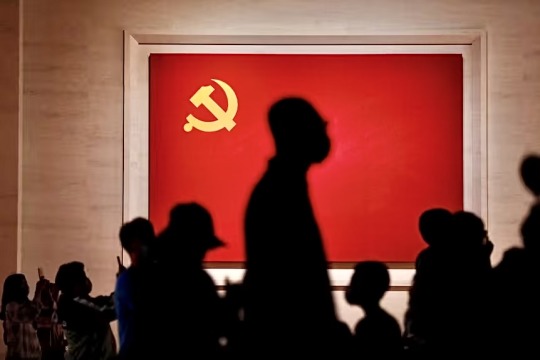
The unit Eric worked for is one of the CCP's key tools of repression.
(Photo: Reuters)

Edwin Yin moved to Australia in 2018.
(Photo: Four Corners / Keana Naughton)
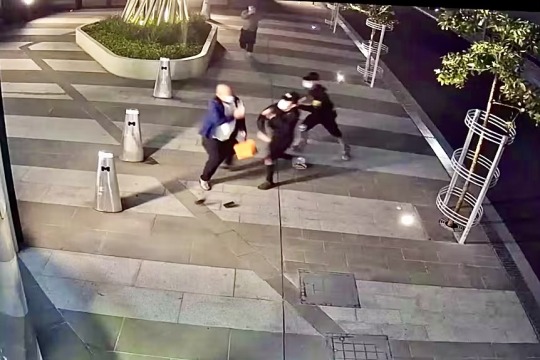
The attack on Mr Yin was caught on CCTV.
(Photo: Victoria Police)
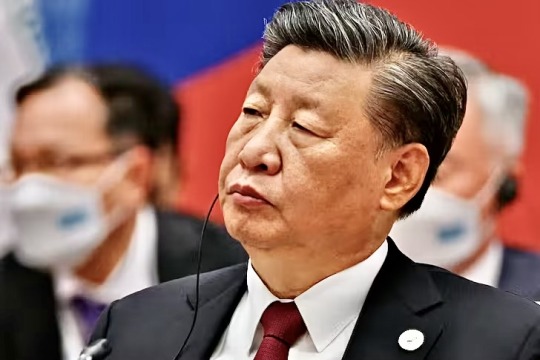
China’s President, Xi Jinping, has paid close attention to the Chinese population overseas.
(Photo: Associated Press)
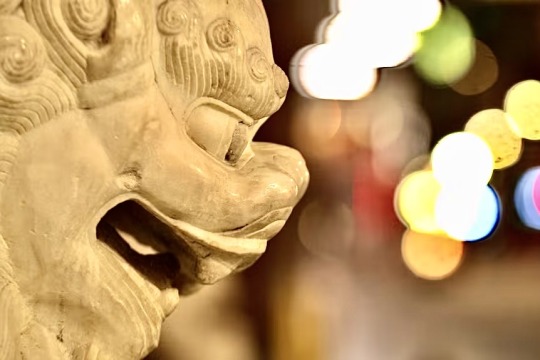
Thousands of Chinese citizens have been monitored and forcibly returned to China.
(Photo: Four Corners)
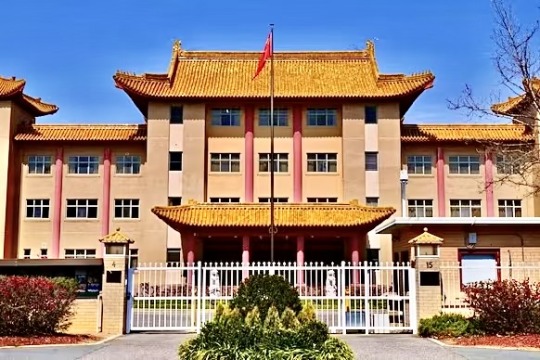
The Chinese embassy in Australia.
(Photo: ABC News / Dylan Anderson)
Eric has been spying on people around the world for the Chinese government. Now he's telling all.
For the first time ever, an undercover agent for China’s secret police steps out of the shadows to tell all about where he’s been and who he’s been targeting.
The inner workings of China's notorious secret police unit and how it hunts down dissidents living overseas – including in Australia – have been exposed by a former spy in a Four Corners investigation, raising tough questions about Australia's national security.
It is the first time anyone from the secret police – one of the most feared and powerful arms of China's intelligence apparatus – has ever spoken publicly.
The investigation also found the existence of an espionage operation on Australian soil only last year and the secret return of an Australian resident to China in 2019.
By Echo Hui, Elise Potaka and Dylan Welch / ABC TV Four Corners program
ABC News - 13 May 2024
YouTube video >> ABC TV Four Corners program: Unmasking the man who's been spying for China | Four Corners | ABC In-depth [Released 13 May 2024 / 47mins.+23secs.]:
youtube
For the first time ever, a former spy for China's notorious secret police - one of the most powerful arms of the country's intelligence apparatus - goes public, exposing the covert and illegal operations he was ordered to carry out on foreign soil and the dissidents he was tasked with tracking, including in Australia, Canada, India, Cambodia and Thailand.
In a major investigation reported by the ABC's Echo Hui, the spy - who goes by the name Eric - comes out of the shadows at great danger to himself, revealing his face to expose how China has used its global network over the last two decades to surveil, silence and kidnap those its government and president Xi Jinping deems enemies of the state.
The spy divulges his double life and the secrets he's been guarding. He reveals the inner workings of the secret police, including the companies they use as cover, who his targets were, and the tactics he used to hunt them down.
It raises tough questions about China's global reach and Australia's national security.
•
2 notes
·
View notes
Text

Nanna Heitmann (German-Russian,b. 1995)
Magaras, Yakutia, Russia, 2021
147 notes
·
View notes
Text
Antonio Velardo shares: Un pueblo ruso entierra a un soldado e intenta encontrarle sentido a la guerra by Valerie Hopkins and Nanna Heitmann
By Valerie Hopkins and Nanna Heitmann Garipul Kadyrov estaba por cumplir 50 años. Después de morir en el frente de batalla en Ucrania, sus familiares y vecinos se cuestionan si tiene algún propósito la muerte de otro soldado. Published: December 4, 2023 at 11:03AM from NYT En español https://ift.tt/UkMQGqr via IFTTT

View On WordPress
0 notes
Link
[ad_1] Russian conscript soldiers at the Alabino training site outside Moscow in August.Credit...Nanna Heitmann for The New York TimesSenior Russian officials said Thursday that an anticipated 69 percent leap in the country’s defense spending for 2024 is meant to assure that it wins the war against Ukraine, with arms spending expected to outpace the cost of government social services.“The structure of the budget indicates that the main emphasis is on ensuring our victory — the army, the defense capabilities, armed forces, fighters — everything necessary for the front, everything necessary for victory is in the budget,” the minister of finance, Anton Siluanov, told an economic forum in Moscow.“This is a significant strain on our budget, but this is our absolute priority,” he added.Preliminary budget figures released recently indicated that spending on the military would triple next year compared to 2021, the year before Moscow’s full-scale invasion of Ukraine. The government has allotted some 10.8 trillion rubles, or more than $113 billion, for 2024, up from 6.4 trillion rubles this year and 3.6 trillion in 2021.The amount earmarked for social spending, including pensions, benefits and other public subsidies, is set at 7.5 trillion rubles. It is the first time in modern Russian history that military spending will outpace social spending, according to Russian press reports, and the disparity may be even greater because some spending on defense is not reflected in the published figures.Dmitri S. Peskov, the spokesman for President Vladimir V. Putin, defended the budget on Thursday, arguing that Russia required “high expenditures” because it was fighting a Western alliance, what it refers to as a “hybrid war,” rather than just Ukraine.Since invading Ukraine in February 2022, the Kremlin has repeatedly sought to portray its bloody attempt to overpower its neighbor and annex its land as self-defense against the eastward expansion of NATO and the European Union. America provides about a third of direct weapons donations to Ukraine’s army.Congress has approved about $43 billion in security assistance. The White House has requested from Congress an additional $24 billion for Ukraine.“It’s clear that this increase is necessary,” Mr. Peskov told reporters in Moscow. “It is absolutely needed because we live in a state of hybrid war.”Projected budgets for 2025 and 2026 show a drop in military spending, but economic analysts said continued investment in the manufacture of arms and ammunition will likely keep spending high as long as the war grinds on.So far, high prices for Russian oil exports have helped the country’s economy weather stringent economic sanctions imposed by Ukraine’s allies to punish it for the invasion. Still, high military spending would likely have a detrimental effect on living standards over the long term, analysts said.“Expenditure on this scale leads to the expansion of groups that benefit from war — soldiers and their families, the military-industrial complex, military officials — and a reduction in income for everyone else,” Boris Grozovski, a Russia analyst, wrote in a blog post. “Extending the war will result in a gradual decline in living standards in Russia.”Show more [ad_2]
0 notes
Text

Nanna Heitmann | Magnum
27 notes
·
View notes
Text
instagram
1 note
·
View note

